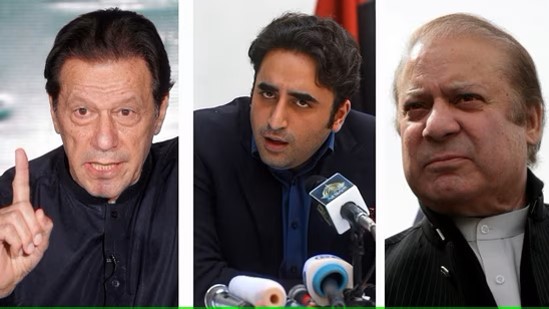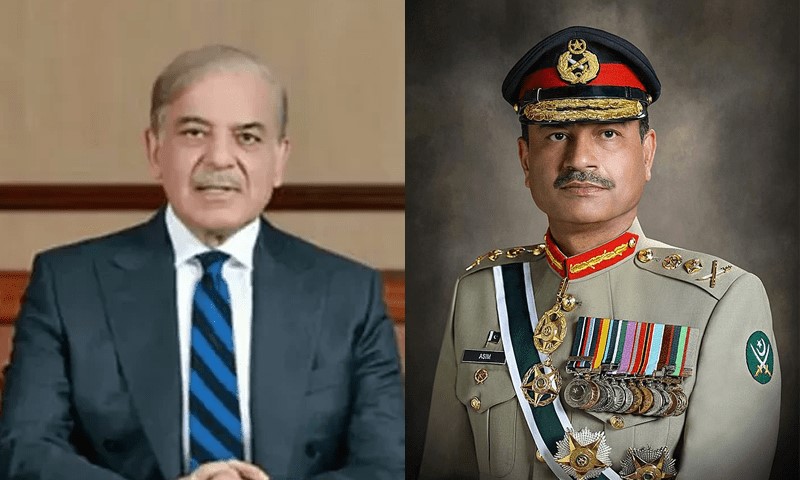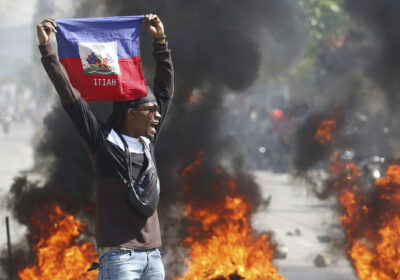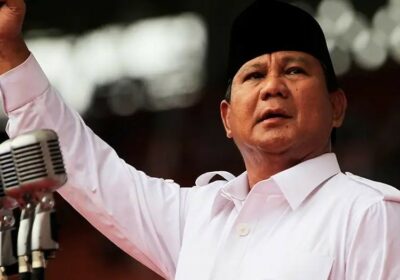PAKISTAN: THE VOTE DOES NOT DISPEL UNCERTAINTY

Last Thursday, at 5pm, the polls closed in Pakistan, after one of the most turbulent elections (127 million eligible voters) in history, marked by violent clashes, dozens of deaths, allegations of widespread fraud, suspension of mobile phone networks (the government claims these are security measures, but the High Court of Pakistan considers them illegal), a ban on exit polls, and agents everywhere preventing independent monitoring of polling stations.
It took more than three days to get the official verdict from the Election Commission: the independent candidates affiliated to the Pakistan Tehreek-e-Insaf (PTI) party of former Prime Minister Imran Khan – in prison since 9 May 2023, sentenced to 10, 17 and 7 years for violation of state secrets, corruption and illegal marriage just six days before the elections – discovered that the government forbade them to stand with their own symbol, but they still secured the largest number of seats in parliament, namely 93. The Nawaz Party of Pakistan Muslim League (PMLN), led by former Prime Minister Nawaz Sharif, is second with 75 seats. The Pakistan People’s Party (PPP) gets 54 seats, the Muttahida Qaumi Movement (MQM), a party that is likely to play a key role in the coalition talks, secured 17 seats. No party gets a majority in parliament, so there will be no chance of forming a government without complex compromises[1] .
The country, with a population of 240 million, at least 40 per cent of whom live in extreme poverty, has been in a seriously unstable political situation for decades, punctuated by terrorist attacks, widespread violence, murders, imprisonments and coups by the military. There is growing intolerance towards diversity. The resurgence of extremist groups along the border with Afghanistan ends up fuelling strong tensions with the Taliban-led country. Relations with India are also tense, mainly because of the dispute over Kashmir, which both countries claim. After India revoked Kashmir’s special status in 2019, Pakistan suspended diplomatic relations and trade with India. The frost between the two traditional enemies does not help: the absence of a clear winner in these elections only adds to the woes of a country that also has to contend with a long-stalled economy, which shows no signs of recovering, and climate catastrophes. The Karachi stock index and Pakistan’s government bonds, meanwhile, plummet.
Password: eliminate Imran Khan

The three leaders of the major parties: from left Imran Khan of the PTI, Bilawal Bhutto Zardari of the PPP and Nawaz Sharif of the Pakistan Muslim League (PML-N)[2]
Victory seems to be his, even if he is segregated in a prison: known for being a champion cricketer, who led the team to lift the World Cup, beating England, in 1992, Imran Khan entered politics in 1996 and became Prime Minister in 2018. He ousted Nawaz Sharif with an election campaign based on fighting corruption, but also thanks to the support of the army, which hoped to make him a puppet. But Khan proves to be anything but tame: his stubbornness in not wanting to compromise, neither with the oppositions nor with the army, as well as controversial choices that have divided the population (such as his support for Putin in the Ukrainian invasion and his friendship with China), earn him the aversion of the United States and defections within his own party[3] , even though many are abandoning due to pressure from the army[4] . Negative opinion is weighed down by his poor economic performance and his tendency to centralise power and pursue a strong authoritarian drift. Nevertheless, the recent elections unequivocally show that Khan enjoys broad popularity.
In November 2022, he was involved in a shootout while leading a protest march to claim early elections: wounded in the leg by a gunman who was later shot by the police, Khan was saved. In a statement issued by the general secretary of the centrist PTI party, Imran Khan accuses opposition leader Shahbaz Sharif, Interior Minister Rana Sanaullah and the director of counter-intelligence, Major General Faisal Naseer, of orchestrating an attack: ‘I have firm information about the attack and demand that all three be removed from their posts. If they are not removed, we will call for a nationwide protest’[5] . The war between him and the army is over.
In April 2023, a no-confidence motion removed him from office and on the following 10 May, in Islamabad, dozens of agents in riot gear surrounded and captured him, loading him into a jeep: taken to a cell, on 5 August he was sentenced by the Supreme Court for having made ‘false and erroneous declarations on his financial status’ and, therefore, for ‘corruption’. A heavy blow for an inconvenient leader, but above all for his party, which a few days earlier had emerged victorious in the national polls and in the July by-elections in Punjab[6] .
Since his arrest, Khan has collected more than 100 charges, including the illegal sale of state gifts to the value of USD 600,000 during his term of office (between 2018 and 2022) for which he received a 3-year sentence and a 5-year ban from public office[7] . In addition, he allegedly used state funds to compensate a real estate tycoon for land owned by the Al-Qadir Trust that would be used to build a new university[8] .
The hidden direction of the military

Prime Minister Shehbaz Sharif, who admits to being a pawn of the military[9] , and the army chief, Gen. Asim Munir)[10]
One of Khan’s greatest faults, such as to draw the wrath of the military elite upon himself, is that of not bowing to the army and demanding early elections, accusing the establishment of obstructing the democratic process to the point of denying it. A group of corrupt generals had been running Pakistan for some thirty years, leading the country to instability and economic collapse, until they officially stepped aside in 2008 in favour of a democracy that had never really been accomplished[11] . Since that date, in fact, he remains an occult actor pulling political strings from behind the scenes, influencing parties and the judiciary and manipulating election results: to govern, one needs the support of the military elite rather than popular support.
But Khan loses that support through his actions in government, gaining no confidence in 2022, when he is replaced by a grand coalition led by Pakistan’s two most important political dynasties: the Pakistan Muslim League-Nawaz (PML-N) of the Sharifs, and the Pakistan People’s Party (PPP) of the Bhuttos. Rather than organise a serious parliamentary opposition, Khan chooses to foment the squares. Meanwhile, while Shehbaz Sharif’s government is forced to take unpopular decisions to try to stem the heavy economic drift, terrorist attacks are on the rise in the country, which was also torn apart by the severe flooding in the summer of 2022.
With the popularity of the government being called into question by events, Imran Khan, with his PTI, dominates in all by-elections, hinting at a victory in the national elections scheduled for the end of 2023: this is obviously intolerable and handcuffs are snapped for him on 9 May. Shayan Bashir, PTI communication secretary in the state of Punjab, says: ‘The manner in which the PTI and its cadres were brutalised is unlike anything in Pakistan’s past. The theft of nomination papers, the nomination of candidates in police reports, the rejection of nominations on an unprecedented scale, the forcing of PTI candidates to leave the party under duress – the evidence of this is available to show what the party has to endure.”[12] .
Meanwhile, on 10 August 2023, Prime Minister Shehbaz Sharif resigned and Parliament was dissolved[13] . The Constitution provides for early elections, but the military leadership, in the voice of Interior Minister Rana Sanaullah, makes it known that there will be no elections by the end of the year[14] . But this will not be the only confrontation to be suspended: the government is also violating the Supreme Court order to hold polls in Punjab and Khyber Pakhtunkhwa at the beginning of 2023[15] . The interim government should be neutral, its members should be chosen by mutual agreement between the majority and the opposition. In fact, politicians and technocrats very close to the army are chosen, such as Anwaar ul Haq Kakar, who was surprisingly elected as interim prime minister, a senator representing the province of Balochistan, known for supporting the army’s violent actions to suppress Islamic terrorism and separatist groups[16] .
Kakar, accused by the opposition of ignoring the limits of his role, acquires broadened powers in economic matters, passes amendments to the laws on the secret service and the army, gives parliament more powers in the suppression of dissent – all typical activities of a military-style leader. Despite everything, the Supreme Court manages to set the date for the elections, which are finally to be held in early February 2024. On 21 October, in order to prepare for the elections, former Prime Minister Nawaz Sharif, the usual opponent of the military establishment, who has been a fugitive since 2019 after being convicted of corruption, returns home[17] .
Unexpected victory conceals deep pitfalls

Khan’s proclamation of victory through a video created by artificial intelligence[18]
Khan’s campaign is overwhelming, a growing tam tam that mainly uses social media as its main vehicle, creating highly effective virtual plazas that are stopped neither by his arrest nor by that of thousands of his collaborators and supporters. The overwhelming victory obtained by his independent candidates, for the first time in history, is proclaimed by Khan through a ‘deep fake’, an artificial intelligence-generated video created by his collaborators on the basis of a text written and approved by Khan in prison[19] .
Khan’s is a humiliating victory for the military and a huge revenge for a former prime minister who, from behind bars, managed to overturn a situation that many considered immutable. All that remains is to wonder what will happen next in Pakistan: Khan is certainly no stranger, having already shown little ability to cope with challenges, especially economic ones, and security issues. It is not just a question of violence: Pakistan is facing a food and energy security crisis, growing conflicts with neighbouring countries and in its own provinces, terrorism, deeply deteriorated relations with India and the international community, a huge debt with the IMF, a current inflation rate of over 28%[20] , all challenges that also require strong political cohesion, which is currently impossible.
Everything depends on the choices that the PTI intends to make: this majority, barring unforeseen but unlikely reversals (there are strong disputes and appeals to the Constitutional Council for fraud), does not seem to be there. However, members of parliament could form a government regardless of their political affiliation, and candidates with ties to the PTI could choose to join as independents, so that a coalition government over the 134-seat threshold would be possible.
It would still be a weak government and consigned to the inevitable pressure from the oppositions – a government whose independent ministers could easily be forced to resign. What is certain is that for the first time the popular consensus chooses to go in a stubbornly contrary direction to a decades-old status quo firmly in the hands of the army. A rebellion that will increase instability – but which we like to think is a first step towards a future true democracy.
JPN032
[1] https://worldview.stratfor.com/article/no-clear-winner-pakistans-election-yields-more-political-uncertainty
[2] https://www.hindustantimes.com/world-news/pakistan-election-result-2024-live-updates-nawaz-sharif-imran-khan-pak-poll-winners-11-february-2024-latest-news-101707609844448.html
[3] https://time.com/6165096/imran-khan-supreme-court-decision/
[4] https://www.china-files.com/il-pakistan-e-di-nuovo-nelle-mani-dellesercito/
[5] https://time.com/6228747/imran-khan-assassination-attempt-pakistan-brink/
[6] https://www.dawn.com/news/1700283
[7] https://www.china-files.com/il-pakistan-e-di-nuovo-nelle-mani-dellesercito/
[8] https://www.fairplanet.org/editors-pick/pakistans-rule-of-law-undermined-as-military-and-political-elite-clash/
[9] https://www.ndtv.com/world-news/pakistans-outgoing-pm-shehbaz-sharif-admits-to-backing-from-military-report-4289173
[10] https://www.aajenglish.tv/news/30326798/pm-shehbaz-condemns-imran-khan-for-continued-sinister-campaign-against-gen-asim
[11] https://hindupost.in/world/pakistan/how-the-army-corrupt-elite-turned-pakistan-into-a-basket-case/#
[12] https://www.aljazeera.com/news/2024/1/12/election-engineering-is-pakistans-february-vote-already-rigged
[13] https://indianexpress.com/article/pakistan/pakistan-pm-shahbaz-sharif-announces-govt-will-step-down-early-elections-likely-in-november-8843277/
[14] https://www.dawn.com/news/1769052
[15] https://asia.nikkei.com/Politics/Pakistan-parliament-dissolved-as-PM-Sharif-makes-way-for-caretaker?utm_campaign=GL_asia_daily&utm_medium=email&utm_source=NA_newsletter&utm_content=article_link&del_type=1&pub_date=20230810123000&seq_num=24&si=891032
[16] https://asia.nikkei.com/Politics/Who-is-Anwaar-Kakar-Pakistan-s-new-caretaker-prime-minister
[17] https://www.dawn.com/news/1776664
[18] https://www.france24.com/en/tv-shows/truth-or-fake/20240208-artificial-intelligence-and-deepfakes-takeover-pakistan-elections
[19] https://www.france24.com/en/tv-shows/truth-or-fake/20240208-artificial-intelligence-and-deepfakes-takeover-pakistan-elections




Leave a Reply